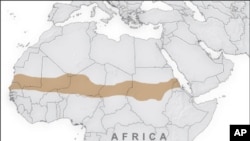The Director of the Center for Financial Policy at the University of Maryland Business School in the United States says enhanced inter-regional economic cooperation among African Countries could reduce the effects of future world financial meltdown.
This comes as African finance officials concluded their meeting in Lilongwe, Malawi on ways to soften the effects of global economic shocks on Africa.
Lemma Senbet, who is also professor of finance, said some African countries were in the process of adopting sound financial policies before the recent economic meltdown.
“It is really useful to know that most African countries were growing in the same proportion as East Asian countries pre (economic)-crisis. Like an average growth of something like 6 %, which outpaced the population growth or per capita income has been very positive prior to the crisis. Then of course with the crisis, we had the decline in demand for exports, decline in remittances, trade flows so a lot of external shocks that ended up reducing GDP,” he said.
The African Union also said in a statement that the global economic crisis pushed 27 million more people into poverty in Africa, putting the continent in what the continental body described as a “precarious situation”.
Senbet said Africa has not fully recovered from the recent recession.
“Have we gotten out of this? I don’t think so, but I would like to say that there are some kinds of rebound. The reason is that the effect came from global crisis, but the global economy is also rebounding although it is in early stages of recovery. So, that is actually helping… trade flows and export income. In fact the IMF is actually now predicting that growth will move up to something like above 4 %,” Senbet said.
According to an African Union report “economic growth in the world’s poorest continent slumped to 1.6 percent last year from 4.5 percent in 2008, as the global recession slashed demand for platinum, copper and oil. The Democratic Republic of Congo, Zambia, South Africa and Botswana were worst hit by job losses as mining companies scaled back output.” The report said.
Senbet said the African economy lacks much needed diversity.
“Part of the problem is that the continent is vulnerable to external shocks because the economy is not well diversified. Very heavy reliance on a few commodities and a few export items makes it very difficult. And then what happens is that most of the trade that originates from Africa is with the rest of the world and the intra-Africa trade is actually very small almost like 10%,” Senbet said.
He also said Africa can reduce outside shocks by engaging in policies that can enhance regional cooperation so that there would be more trade among African countries.




